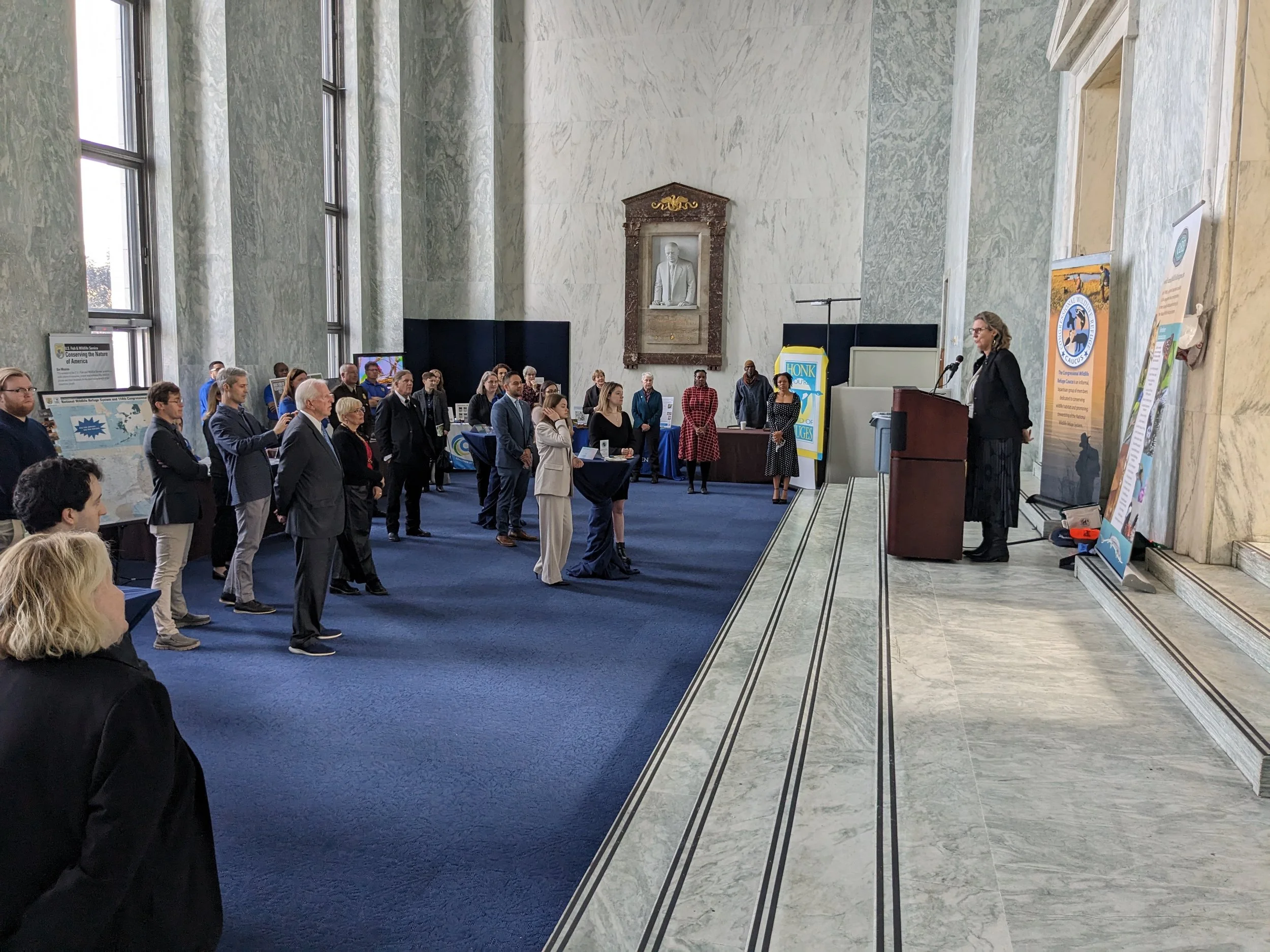Wildlife refuges are in crisis. Learn what’s happening and how you can help protect them—before it’s too late.
$500 Million for Refuge Disaster Relief—Thanks to Your Advocacy!
Big news for national wildlife refuges! Congressional leaders just released a funding bill to keep the government running through March 14, 2025 (coincidentally the anniversary of the National Wildlife Refuge System!). But even more exciting, this bill includes $500 million for disaster relief to repair national wildlife refuges damaged by hurricanes, floods, and severe storms.
President Geoffrey Haskett Champions BIDEH Rule & Funding For National Wildlife Refuges
President Geoffrey Haskett of the National Wildlife Refuge Association testified before Congress on the proposed revisions to the Biological Integrity, Diversity, and Environmental Health (BIDEH) rule for the National Wildlife Refuge System.
Fiscal Year 2024 Spending Bill Shortchanges National Wildlife Refuge System
Congress recently passed a package of several fiscal year (FY) 2024 spending bills, including the Department of the Interior, Environment and Related Agencies bill that funds the National Wildlife Refuge System. This spending bill will cut $14.5 million from the National Wildlife Refuge System’s Operations & Maintenance budget, or a 2.6% reduction from FY2023 levels. Notably, this bill also does not provide funding to cover the 5.2% pay increase for federal employees that went into effect in January. It costs the Refuge System an estimated $3
Crisis In The Wild: How Staffing Shortages Threaten Southwest National Wildlife Refuges
National wildlife refuges across the Southwest, particularly in northern New Mexico and southern Colorado, are facing a severe staffing crisis. This shortage of personnel threatens the vital conservation work that these refuges undertake, impacting both wildlife and the communities that rely on these natural spaces for recreation and education. This local crisis reflects a nationwide staffing issue that the National Wildlife Refuge Association has been working to address.
The Wildlife Toll: Why Continuing Resolutions Fall Short For The National Wildlife Refuge System
The National Wildlife Refuge System stands as a stronghold for biodiversity and Nature-based Solutions supporting climate resiliency and conserving the delicate balance of nature. However, the ongoing challenge of funding through continuing resolutions poses a significant threat to the thriving wildlife that calls these national wildlife refuges home.
National Wildlife Refuge Expo 2023: A Celebration of Conservation on Capitol Hill
On Wednesday, November 15th, 2023, the halls of the Rayburn Office Building on Capitol Hill echoed with the enthusiastic celebration of wildlife conservation at the National Wildlife Refuge Expo. Back from a few years' hiatus during and following COVID, from 10 am to 2 pm, attendees had the opportunity to engage in a variety of activities, from a captivating live raptor display to adult coloring sessions, all while learning about the vital work happening within the Refuge System.
Few staff, many problems: Inside the Missisquoi National Wildlife Refuge’s funding crisis
On spring mornings, a chorus erupts from the mouth of the Missisquoi River.
Scores of birds, from Canadian geese to bobolinks, are migrating north, feeding, breeding, and raising their young in the Missisquoi National Wildlife Refuge. Deer feed on the shores, while muskrats patrol the shallow waters alongside a myriad of fish, with the river itself one of the few spawning sites of Lake sturgeon in Lake Champlain.
However, budget constraints across the National Wildlife Refuge System have put a chokehold on what the skeleton crew managing the local 7,000-acre refuge can do.
The National Wildlife Refuge Association Embarks on Campaign to Address Refuge Staffing Crisis
The National Wildlife Refuge System, the world's largest network of lands and waters dedicated to wildlife conservation, is facing a staffing crisis that threatens its ability to protect biodiversity and provide recreational opportunities. In response to this dire situation, the National Wildlife Refuge Association is focusing its efforts in the 118th Congress to raise awareness of this issue and secure the necessary funds to sufficiently staff the Refuge System. We recently sent a letter to Shannon Estenoz, Assistant Secretary for Fish, Wildlife, and Parks, and Martha Williams, Director of the U.S. Fish and Wildlife Service, outlining the work we will be doing with our partners and supporters to advocate for increased funding for the Refuge System to address these challenges.
November 2022 Legislative Update
In November, the National Wildlife Refuge Association continued to advocate for increased appropriations for the National Wildlife Refuge System (Refuge System) in fiscal year (FY) 2023. We led a letter signed by 62 organizations, including 17 Refuge Friends organizations, to appropriators requesting at least the funding levels of $574 million included in the House-passed version of the Department of the Interior Appropriations bill, and we signed a group letter requesting increased funding for environmental agencies that goes well above simply keeping pace with inflation.











